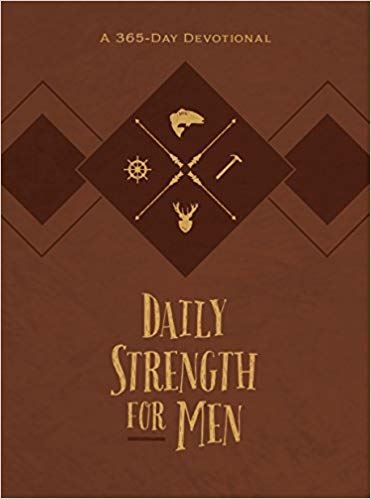Christians, Calvinists, Arminians: Why Are We So Divided on the Doctrine of Election?

“You can’t be a Christian and support Donald Trump.”
“You can’t be a Christian and support gay marriage.”
You probably see statements like these on social media or hear them in conversations. You may even make such statements yourself.
Debates about what beliefs and practices are acceptable for Christians are nothing new. But they rarely involve essential Christian beliefs, such as God being a Trinity or Jesus rising from the dead. Instead, they focus on non-essentials, or secondary issues.
Nearly 400 years ago, a Lutheran theologian and educator named Rupertus Meldenius(or Peter Meiderlin) encouraged Christians with different points of view on non-essentials to stay unified in the Christian faith. He famously made a statement in Latin that, translated, means:
In essentials unity; in non-essentials liberty; in all things charity.
Sadly, his advice has not stopped Christians from lobbing verbal hand grenades at each other since.
Often, the mean-spirited words have resulted from a disagreement on the doctrine of election, or how people are chosen for salvation.
One outspoken Calvinist deemed John Wesley a ‘satanic assassin.’
Augustus Toplady had nothing but contempt for a certain pastor. Toplady once described the man as “the most rancorous hater of the gospel-system that ever appeared on this island.” On another occasion, Toplady said that the pastor was “guilty of satanic shamelessness, of acting the ignoble part of a lurking, shy assassin.”
Who was this depraved pastor? John Wesley, the leader of a revival movement within the Church of England known as Methodism. Today’s Methodist and Wesleyan churches and The Salvation Army all sprung from the societies that Wesley founded.
What was Wesley’s crime? Why did Toplady characterize Wesley as a satanic hater of the Gospel?
Toplady was a Calvinist. Wesley was not.
How do Calvinists and Arminians differ on their view of election?
Calvinism, or Reformed Theology, agrees with the teachings of John Calvin (1509-1564), a leader of the Reformation.
Arminianism is based on the views of Dutch theologian Jacobus Arminius (1560-1609), who started as a strict Calvinist but, after studying the Book of Romans, rejected many Calvinistic doctrines.
Arminius’ rejection of Calvinism hinged on what Calvinism says about election.
According to Calvinism:
- Because of the Fall, man is totally depraved, dead in his sin, and unable to save himself. God must initiate salvation.
- Before the foundation of the world, God unconditionally chose (or "elected") some to be saved.
- Jesus died to save only those who were given to him (elected) by the Father in eternity past.
- God's grace draws the elect to salvation, making each elect person willing to respond. This grace cannot be obstructed or resisted.
Arminius believed that, in Calvinism, man has no free will. While agreeing with Calvin that man has inherited a corrupted, depraved nature, Arminius believed that faith, not predestination, is the cause of election. "It is an eternal and gracious decree of God in Christ,” he wrote, “by which He determines to justify and adopt believers, and to endow them with eternal life, but to condemn unbelievers, and impenitent persons."
The preparatory work of the Holy Spirit, Arminius maintained, enables some people to respond to God's call to salvation. Essentially, God “elects” those who will choose him of their own free will.
Arminius was a member of the Dutch Reformed Church, which essentially was the state church of his homeland, The Netherlands. The church was a bastion of strict Calvinism, so strict Calvinism was the law of the land.
Even though he was a member of a university’s theological faculty when he articulated his objections to Calvinism, his actions led to a government investigation, with Arminius dying before the investigation was complete.
Controversy over Arminius’ teachings grew after his death, to the point that there was the threat of a civil war! Arminianism was declared "a dangerous error in the faith tending to heresy” and even a heresy by itself.
What is the debate today between Calvinists and Arminians?
Now, hundreds of years later, no one is threatening civil war, but the debate still rages. Calvinists, such as those at Westminster Seminary California, characterize Arminianism as “very influential in evangelical and Pentecostal circles today.”
While stating that most Arminians are evangelical Christians, the seminary’s website cautions that how Christians “worship and witness and serve and live” depends on whether they are Calvinists or Arminians. Implying that Arminianism is “shallow” and that “shallow religion produces shallow Christian living,” the website stresses that today’s church needs “the God-centered biblical message” of Calvinism.
While the website says that Calvinists are a “small minority within Christendom,” Calvinism has many supporters in the American church. The directory for The Gospel Coalition, a central hub for the Reformed evangelical movement, lists over 5,000 churches.
The Moody Bible Institute says that its positions are “non-charismatic, dispensational, and generally Calvinistic,” and most preachers on Moody Radio are Calvinists. So are the pastors of many nondenominational megachurches.
Calvinists and the Josh Harris Controversy: is he Christian or not?
The Calvinist viewpoint is commonplace on many evangelical websites and blogs. An example is a recent post on the Family Research Council (FRC) website entitled “Finding Hope in the Joshua Harris Story”.
Harris, the son of Christian homeschooling pioneers Gregg and Sono Harris, was 22 when his book I Kissed Dating Goodbye was published in 1997. The book, which urged Christians to forego casual dating in favor of courtship, sold 1.2 million copies and became synonymous with the purity movement among evangelicals. Harris, who married in 1998, was installed as senior pastor of a Gaithersburg, Maryland megachurch in 2004.
Harris left that church in 2015 to pursue formal theological education. A year later, Harris began to apologize to people who had been hurt by I Kissed Dating Goodbye, and in 2018 he disavowed the book entirely. In July 2019 he announced that he and his wife were getting a divorce and that he no longer considers himself a Christian.
The FRC post states that Harris didn’t turn away from his faith. He didn’t stop believing the Gospel that he preached for two decades, including 11 years as the senior pastor of a megachurch.
Instead, the author of the post surmises that Harris never was a true Christian.
Why? Calvinists believe in eternal security, or the idea that, once a person is saved, he or she cannot lose that salvation. Citing Philippians 1:6 and John 10:28, the FRC post asserts that, if Harris were a true believer, then he could not lose his salvation.
By renouncing his faith, Harris is demonstrating that he never really believed. The long-time pastor never experienced conversion.
Regardless of our differences, we can cling to the Rock of Ages.
If you’re an Arminian, then how should you engage with a Calvinist? If you’re a Calvinist, then how should you engage with Arminian? How can you strive to be unified with other Christians on essentials while disagreeing – with Christian love – on non-essentials?
For starters, you can learn what Augustus Toplady did not.
In 1776, as a slap at Wesley, Toplady wrote an article about God’s forgiveness, ending it with an original poem that began with these words:
Rock of Ages, cleft for me, let me hide myself in Thee;
Let the water and the blood from thy wounded side which flowed,
Be of sin the double cure, save from wrath and make me pure.
Set to music by Thomas Hastings, that poem became one of the best-known and best-loved hymns in the English language.
Unbeknownst to Toplady, it also echoed something that Wesley had written 30 years earlier:
“O Rock of Salvation, Rock struck and cleft for me, let those two Streams of Blood and Water which gushed from thy side, bring down Pardon and Holiness into my soul.”
The everlasting Rock can save anyone from wrath. Even people whom you think are dead wrong.
And you.

Photo Credit: ©GettyImages/natasaadzic
Originally published August 16, 2019.







